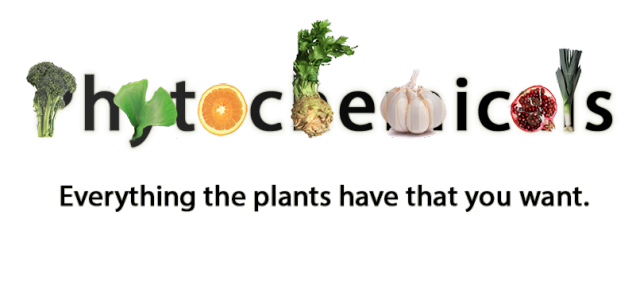Phytochemical and its Development for Functional Foods
Greetings to fellow foodies! Through this opportunity, I’d like to talk about a field in the food industry that has gotten a lot of interest lately, which is Phytochemical. Does it ring a bell? If not, let me enlighten you on the topic.
 Phytochemical, pronounced fīdōˈkemik(ə)l, is a noun that according to the Oxford Dictionary means any of various biologically active compounds found in plants. To put it simply, phytochemicals are compounds that are naturally present inside vegetables and fruits. It is not considered as an essential nutrient; however, it is known to be one of the most powerful protective or disease preventive properties. It is very well-known that plant produce these chemicals to protect themselves but recent research demonstrate that they can also protect humans against diseases. There are more than thousand known phytochemicals. Some of the well-known phytochemicals are lycopene in tomatoes, isoflavones in soy and flavanoids in fruits.
Phytochemical, pronounced fīdōˈkemik(ə)l, is a noun that according to the Oxford Dictionary means any of various biologically active compounds found in plants. To put it simply, phytochemicals are compounds that are naturally present inside vegetables and fruits. It is not considered as an essential nutrient; however, it is known to be one of the most powerful protective or disease preventive properties. It is very well-known that plant produce these chemicals to protect themselves but recent research demonstrate that they can also protect humans against diseases. There are more than thousand known phytochemicals. Some of the well-known phytochemicals are lycopene in tomatoes, isoflavones in soy and flavanoids in fruits.
There are many phytochemicals and each works differently. Some possible actions are antioxidants, hormonal actions, stimulation of enzymes, interference with DNA replication that prevents the multiplication of cancer cells, anti-bacterial effect, and physical action; such as binding physically to cell walls and preventing the adhesion of pathogens to human cell walls.
The amazing works of these phytochemicals are present in our daily diet, but some of us may have not noticed it yet. So, here’s a few examples of food sources that contains high phytochemicals:
|
Phytochemical |
Rich food source |
|
Polyphenols |
Fruits, vegetables, garlic, onion, red wine, tea, dark beer |
|
Indoles |
Cruciferous vegetables |
|
Phytic acid |
Legumes, whole grains |
| Lignans |
Flax seeds |
As I’ve stated earlier, this field in the food industry has gotten a lot of interest as of lately. And this surge of interest in phytochemicals has spawned the development of functional foods. Functional foods are sometimes also called nutraceuticals, pharmafoods, or designer foods. Functional foods may be defined as any food that has a positive impact on an individual’s health, physical performance, or state of mind in addition to its nutrient value. Examples may include conventional foods; fortified, enriched, or enhanced foods; and dietary supplements. Functional foods provide essential nutrients beyond quantities necessary for normal maintenance, growth, and development, and/or provide other biologically active components that impart health benefits or desirable physiological effects.
More examples of functional foods that are more familiar to our eyes are:
- Omega-3 enriched eggs
- Oats
- Fatty fish
- Fortified margarines
- Soy-functional components and soy protein
- Tomatoes and tomato products
- Probiotics
- Nuts
Now that you know these foods are capable of such marvelous advantages for our health, I advise you to try and consume more foods containing phytochemicals. Moreover, the year-end is approaching and so does the cold weather. Take even better care of your body and prevent any sickness from attacking your body by consuming healthy foods!
Written by: Sarah Aldila (1901516936)

